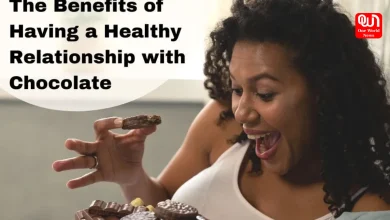Toxic Dating Trends: Recognizing Relationship Manipulation and Dating Red Flags
Learn about toxic dating trends like ghosting, breadcrumbing, and love bombing, and how to recognize relationship manipulation and dating red flags.
Understanding Toxic Dating Trends: How to Spot Relationship Manipulation, Dating Red Flags, and Protect Yourself from Emotional Harm
The modern dating world has brought forth new ways to connect, but it has also brought forth toxic behaviors that hurt and confuse people. Toxic dating trends such as ghosting, breadcrumbing, and love bombing have become the norm, so it is imperative to recognize relationship manipulation and dating red flags before getting too invested. Understanding these behaviors can help individuals protect their emotional well-being and make better choices in their relationships.
Ghosting: The Silent Goodbye
Ghosting is one of the most annoying experiences in dating. It involves a person just cutting off communication without any sort of warning or explanation. Sometimes, everything looks fine, but then they seem to vanish, as if they never existed in the first place. This emotional abandonment can leave the person affected feeling rejected, questioning what may have gone wrong. Ghosting often happens because the ghoster does not want to have an uncomfortable conversation, is not emotionally mature, or has simply lost interest but does not want to admit it. Being ghosted is painful, but it is a clear sign that the person was not capable of a respectful and open relationship. The best response is to accept their silence as closure and move forward rather than seeking answers that may never come.
Breadcrumbing: False Hope and Mixed Signals
Breadcrumbing is another manipulative behavior of a relationship. The person provides minimum attention or affection, just to keep the interested party going without real intention of committing. This may be as low-intensity erratic messages or random compliments and flirty gestures that create an illusion of interest. However, the breadcrumbing individual never makes good on their end, leaving their target confused and strung along. This behavior is emotionally draining and can severely impact self-esteem.
Those who breadcrumb enjoy the power of knowing someone is interested in them without having to invest in a meaningful connection. Recognizing this pattern early on is crucial—if someone’s actions don’t match their words, it’s a clear dating red flag that should not be ignored.
Read more: Dating Apps Versus Organic Connections: Which Works Best for Gen Z Nowadays?
Love Bombing: Intensity with a Hidden Agenda
Unline ghosting and breadcrumbing, love bombing begins so overwhelmingly positively: excessive flattery, continuous attention, big, sweeping gestures-the whirlwind romance. While this makes his girlfriend feel intensely special, most often the affect is a mechanism to control as much as for loving. In an effort not to lose one’s prize of someone who could fall out of love, their pressure turns low keyed and starts acting like emotionally abusive behavior at worst.
Love bombing is the tactic narcissists and emotionally insecure individuals use to seek validation and control over their partners. Healthy relationships begin slowly; if someone’s affection is too intense, it could be time to question their true intentions.
Benching: Keeping You in Reserve
Benching is similar to breadcrumbing but more complicated. Instead of leaving them completely, the person will keep their potential partner “on the bench” as they keep other options open. They send casual check-ins or flirt a little bit; it is just enough to make the other person stay interested, but not quite enough to further move the relationship. This is the manipulative game of someone who fears commitment but does not want to let go of an emotional backup. Someone has to realize whether they are just an option, not a priority. Healthy relationships require mutual efforts, and when someone is not willing to be fully invested in you, you should walk away.
Read more: The Rise of Situationships: How Gen Z is Redefining Commitment
Cushioning: Preparing for the Next Relationship
Cushioning takes place when an individual in a relationship secretly flirts with other people or maintains potential partners as standby in case their current relationship fails. This form of relationship manipulation is both dishonest and disrespectful, as it prevents genuine emotional commitment. People who cushion their relationships often have insecurity issues or fear loneliness, making them unwilling to invest fully in their partner. Discovering that you’ve been cushioned can be incredibly painful, as it shatters trust and leaves lingering doubts about the entire relationship. If a partner’s behavior suggests that they are keeping other romantic options open, it is a serious dating red flag that signals they may not be fully committed.
Final Thoughts: Protecting Yourself from Toxic Dating Trends
These toxic dating trends will help a person avoid heartbreak and emotional distress. The only way to succeed in the new dating culture is clear communication, self-respect, and boundaries. A person whose behavior feels inconsistent, manipulative, or emotionally draining is one whose signs need to be recognized so that a walk can be taken away before feelings grow deeper. Healthy relationships are built on mutual effort, honesty, and respect; anything less is simply not worth your time.
We’re now on WhatsApp. Click to join.
Like this post?
Register at One World News to never miss out on videos, celeb interviews, and best reads.








